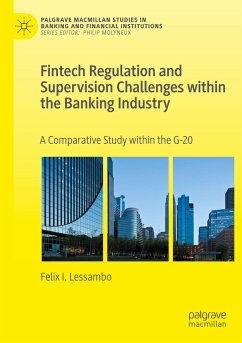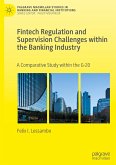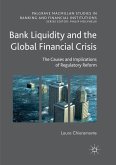Strengthening financial sector regulatory arrangements has been a major focus of the G-20 since the crisis in 2008, and progress in strengthening financial regulations is often cited as its success. Nonetheless, the overall contribution of the G20 as a political forum for the oversight of international financial regulation is diming as FinTech is blurring the boundaries between intermediaries and markets, as well as between digital service providers moving into the financial space, nonbank financial companies, and banks. Along the same line, financial technology is causing paradigm changes to the traditional financial system, presenting both challenges and opportunities. As FinTech grows rapidly, the importance of regulation and supervision becomes more prominent.
The three cornerstones of banking: taking deposits, making loans, and facilitating payments are being reassembled functionally and digitally outside of the bank regulatory perimeter by certain firms. Without comprehensive consolidated supervision, no single regulator can see the whole picture and understand how a firm as a whole operates and takes risk. No crypto firm to date is subject to comprehensive consolidated supervision, creating gaps in supervision alongside risks. Countries around the world are taking divergent views on cryptocurrency and other so-called "Web3" technologies based on blockchain. This book aims to provide a comparison between the various available approaches, models, or legislations by identifying certain key legislative policies within the G-20 as they cope with innovative financial technologies, and will be of interest to scholars, students, and practitioners of banking, financial regulation, risk management, and financial technology.
The three cornerstones of banking: taking deposits, making loans, and facilitating payments are being reassembled functionally and digitally outside of the bank regulatory perimeter by certain firms. Without comprehensive consolidated supervision, no single regulator can see the whole picture and understand how a firm as a whole operates and takes risk. No crypto firm to date is subject to comprehensive consolidated supervision, creating gaps in supervision alongside risks. Countries around the world are taking divergent views on cryptocurrency and other so-called "Web3" technologies based on blockchain. This book aims to provide a comparison between the various available approaches, models, or legislations by identifying certain key legislative policies within the G-20 as they cope with innovative financial technologies, and will be of interest to scholars, students, and practitioners of banking, financial regulation, risk management, and financial technology.








